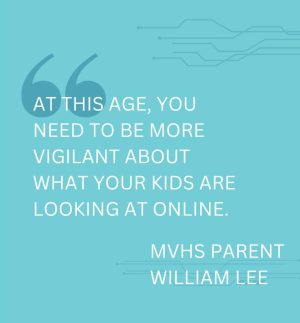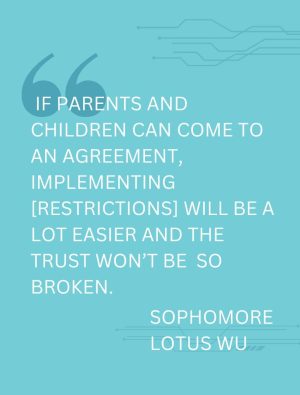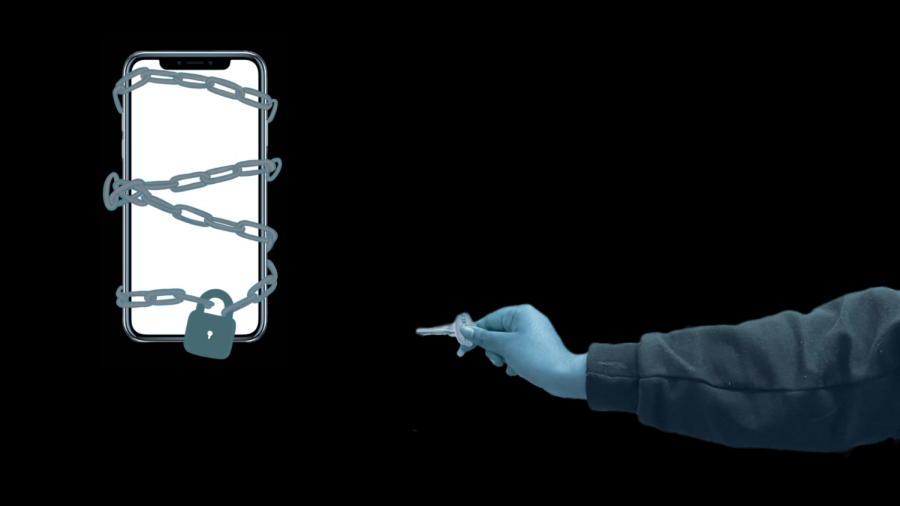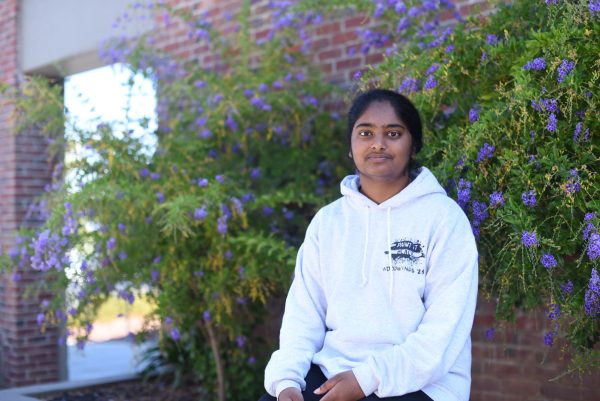Under CTRL
Examining student and parent opinions on parental controls
Photo Illustration | Canva and Megha Mummaneni
Students note that parental controls can sometimes feel overly restrictive, with 52% of MVHS students reporting that they feel dissatisfied with the controls on their device(s).
May 31, 2023
The clock struck ten, and sophomore Lotus Wu found herself unable to continue studying, as the parental controls on her device lock at 10 p.m. each night. Wu felt a sense of urgency as she needed to finish a project and study for a test by the next morning. Despite waking up early the following day and frantically trying to finish her assignments, in the end, Wu wasn’t able to submit the level of work she intended to, leaving her disappointed.
Junior Gale Whittle, who has controls on his iPhone, limiting the amount of time he can spend on social media and restricting 18+ content, has also experienced feelings of panic when parental controls take effect. He has frequently texted people “as [quickly] as possible, then [closed] the app after to not run down the timer,” treating his screen time as a “precious resource that [he] needs to conserve.” Whittle also mentions that disabling his phone at night, which was originally intended to encourage him to go to sleep earlier, ultimately proved ineffective.
“A lot of my friends are online at night because that’s the only free time we have now that we’re super busy,” Whittle said. “I personally hate being isolated, and it was scary to be without contact.”

Similarly, MVHS parent William Lee recognizes that time restrictions are inadequate because his child “winds up staying up to study,” and the controls end up getting in the way of his kid’s ability to do so. He permanently turned off the restrictions once they became more of a hassle than a safeguard, though he still chooses to keep content restrictions on his child’s phone, having enabled them after an information night for parents when his child was in middle school.
“At this age, you need to be more vigilant about what your kids are looking at online,” Lee said. “It’s not a time to give less oversight. You need to give more oversight because there’s a lot that can happen — there’s a lot of bad stuff out there.”
Wu, who has the same iPhone restrictions as Whittle, also addresses the positives that come with safety controls. She acknowledges that restrictions such as age blockers can be helpful in preventing children from viewing sensitive content like pornography and experiencing cyberbullying, both of which are reasons that 39% of parents report using parental controls, according to a survey conducted by the Pew Research Center. However, while Wu recognizes the importance of parental controls for protecting children, especially younger ones, she feels that teens should have more autonomy in terms of screen time restrictions.
She notes that although time restrictions on social media apps do encourage her to be more productive, the controls often make it harder to receive the grades her parents expect, which Wu finds frustrating.
Both Wu and Whittle agree that there is a fine balance between parental controls helping a child be safe online and being overly controlling. While Lee doesn’t restrict his child’s screen time, he plans to lift the safety restrictions he has implemented only after his child turns 18, since he believes that kids should be able to “have that freedom” once they become an adult. On the contrary, Wu believes that a more reasonable age to lift safety restrictions would be 16, as she says that kids need to be ready to face real-world challenges earlier on.

“I think it depends from family to family, but I think the restriction[s] should be taken off a little bit earlier because you have to experience a lot of things firsthand [to] know how to handle it in the future, especially as you’re going into high school and college,” Wu said. “Cyberbullying is something that you have to learn about on your own, or you have to help other people through it to know what it’s like. [There are also] certain inappropriate things you’d have to know how to deal with.”
Ultimately, both Whittle and Wu agree that a crucial part of setting up restrictions is having conversations between parents and their children prior to enabling the controls. Whittle emphasizes the importance of communicating with kids about having healthy relationships with screen time from a young age and teaching them the importance of being able to control the time they spend on their phones.
Wu echoes this sentiment, mentioning that learning to control their own boundaries from a young age will prove more effective for both the child and parent when it becomes the child’s responsibility to “have a sense of self-control when it comes to devices and safety online.”
“It’s important to have that conversation and explain to your child that the internet is not a safe place,” Wu said. “I think a general rule of thumb for parents who feel a need to add these restrictions [is to] communicate with their child and set up a mutual agreement [between] the parent and the child. I feel like if parents and children can come to an agreement, implementing [restrictions] will be a lot easier and the trust won’t be broken.”



















